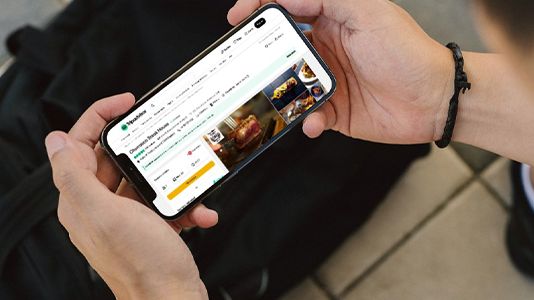
Blog post -
How To Manage Online Reviews
Positive and negative reviews have an immediate impact on a business’s standing both for potential and existing customers. 88% of people are influenced in their buying and purchasing decisions by online reviews and comments and people are more likely to read reviews for hospitality businesses over any other industry so, if you don’t actively engage with your customers on their preferred platforms, you’re missing out!
Consider how you would research a new restaurant venue for a night out with your friends, more often than not, your search will start on Google – and you’ll probably end up reading countless reviews in order to narrow down your choices once you’ve settled on your location. This is how your potential customers are searching for you right now. If you are not proactive in responding to reviews, whether they’re positive or negative then you do not have the ability to control the narrative.
The first thing to accept is that not all reviews are going to be positive, you could do everything right on the day - provide the best customer service, produce amazing food and ensure quick delivery but, there will be factors outside of your control that will adversely affect your scoring – this could be anything from stock issues, the weather or third-party delivery partner failures and even unrealistic guest expectations.

1. Respond to all reviews
It’s tempting to respond only to the negative reviews you receive to defend your business but, it’s important to take the time to acknowledge any customer who has taken time to leave a review for your business. Potential customers reading these reviews will trust existing customers over the brand itself, this is the beauty of free social proof marketing. While your own promotional and marketing efforts will tempt new clients, there’s nothing better than the support of other customers who vouch for the quality of your product and service, especially when those customers are engaged.
2. Personalise your response
Try not to copy and paste your responses even if the comments left are fairly similar as it looks lazy and unprofessional on your part. By addressing your reply to the original poster, or picking up something in their review and including it in your response you show that your business takes customer experience seriously and you’re treating each person as an individual.
3. Address your customer's concerns
Something may have gone wrong, it happens. Apologise and address your customer concerns and tell them how you’re going to improve going forward. For example, they may have complained about long waiting times, you can solve this by better planning your staff roster so, you have more employees to hand at peak dining times. Always provide a form of contact, ideally an email address if your customer wants to discuss their experience further. For more negative reviews, and harder to please customers it’s better to take the conversation offline after your initial response so it doesn’t turn into a slanging match.
4. Encourage online reviews
You can encourage customers to leave online reviews by offering a discount on their next visit or other small incentives but, you need to be transparent about it. You can’t ‘bribe’ customers to leave a positive review however, you can encourage them to take the time to write one. A lot of customers will react badly if they feel they are being heavily influenced towards leaving positive reviews to earn the incentive, that you risk them either leaving a negative comment or abandoning the review process altogether.

According to recent research from Durham University Business School, a good Google rating from customers is more important for restaurants, and more likely to draw in a new clientele, than a good health and safety rating. Researchers compared the UK Food Hygiene rating and Google review rating to the number of customers visiting food venues. Their study concluded that whilst a good hygiene rating is understandably very important, a strong Google customer score was considered the most important aspect for restaurants in terms of boosting their customer base.
The importance of online reviews for the hospitality sector can’t be contested – reviews are the lifeblood of the sector. They make your business stand out from your competitors, raise engagement, and ultimately increase your profits. Recent studies have shown that when a restaurant improves their online customer rating by just half a star, they can increase their booking rate during peak dining hours from 30% to 49%.
The facts
- Up to 90% of UK consumers will research a restaurant before visiting.
- 91% of 18-34 year olds trust online reviews as much as personal recommendations.
- 94% say an online review has convinced them to avoid a business.
- A loss of a half-star rating means a restaurant is 19% less likely to have full seats during peak dining times (UC Berkeley). Likewise, a one-star decrease in a Yelp rating could lead to a 5-9% decrease in revenue (Harvard Business School).

